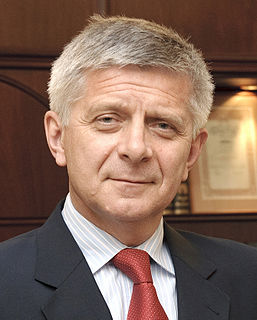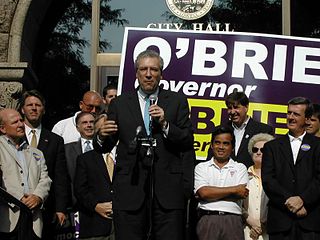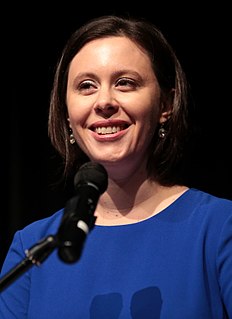A Quote by Marek Belka
Our rate moves will have an impact on the economy in 2013. Whether we raise or lower rates depends on how the economic situation develops.
Related Quotes
Corporate tax reform is nice in theory but tough in practice. It most likely requires lower tax rates and the closing of loopholes, which many companies are sure to fight. And whatever new, lower tax rate is determined, there will probably be another country willing to lower its rate further, creating a sad race to zero.
A higher IOER rate encourages banks to raise the interest rates they charge, putting upward pressure on market interest rates regardless of the level of reserves in the banking sector. While adjusting the IOER rate is an effective way to move market interest rates when reserves are plentiful, federal funds have generally traded below this rate.
Thing we're trying to add to this is that lower corporate tax rates as we try and spur the economy. So that's where the Donald Trump attention is. The president's attention is on the middle class, making sure that's simple, fair and better. And then on the corporate tax rate, to try and get folks to invest in America again. His focus has not been on the impact on the top 1 percent.
There's a tradeoff. Yeah, I lose the deduction that I really like, but my tax rate is going to go down, and I don't have to fill out that form anymore. It's much simpler, rates are lower, and that tradeoff has worked in many countries. Many countries have just cleaned house of all those exemptions in order to provide lower rates, and people buy it.
Donald Trump wants to dramatically reduce America's corporate tax rate (to 15%) and thereby unleash economic growth. Hillary Clinton hasn't said a word about lowering corporate tax rates. Being a Fedzillacrat, you don't need to be an economic soothsayer to know that she supports taxing the producers and further strangling America's anemic economy.
Immigrant families have integrated themselves into our communities, establishing deep roots. Whenever they have settled, they have made lasting contributions to the economic vitality and diversity of our communities and our nation. Our economy depends on these hard-working, taxpaying workers. They have assisted America in its economic boom.
The future path of the federal funds rate is necessarily uncertain because economic activity and inflation will likely evolve in unexpected ways. For example, no one can be certain about the pace at which economic headwinds will fade. More generally, the economy will inevitably be buffeted by shocks that cannot be foreseen.




































